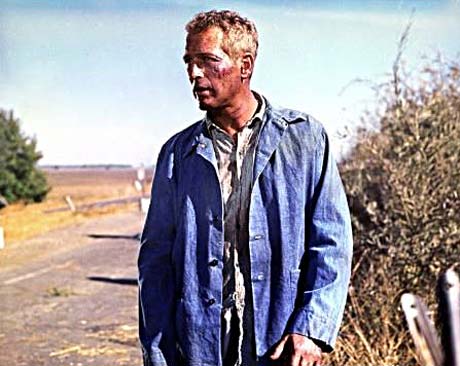Even those who have never seen Cool Hand Luke actor Paul Newmans role as an anti-authoritative criminal struggling to acclimatize to the confines and regulations of prison know the films most notorious line: "What weve got here
is failure to communicate. Perfectly delivered by Strother Martin as the prisons captain, it captures not only the theme of the 1967 film but also the troubled political times during which it was made. In essence, thats about all that happens in Cool Hand Luke: a decorated war veteran who has fallen through the cracks, Luke is brought to a chain-gang prison. While serving time, he eventually rises through the ranks of the inmates to become their champion and spokesman, as he challenges authority and continually tries to escape. Performed in Newmans quiet, reflective manner, Luke is the perfect anti-hero, a prisoner who successfully connects with the audience. Because its delivered with patience, as opposed to rushing through a series of overly climactic situations, Cool Hand Luke establishes itself as a timeless classic. Hence the reason this film is deserving of a deluxe treatment: a new digital transfer. The film is extraordinarily beautiful, itself an amusing point given that in the accompanying retrospective documentary, Rosenberg asserts his frustration that the film looks too good to convey the grittiness of the tale. As for the documentary, little is said other than that the extras and background actors were quite excited to be a part of Cool Hand Luke. Most of the trivia is taken care of during the commentary by Newman biographer Eric Lax, who ensures that each anecdote and piece of information is perfectly, albeit somewhat overindulgently, accounted for. While not an overwhelming tale of action and suspense, its this casual unwinding of Cool Hand Lukes saga that is infinitely inviting and captivating.
(Warner)Cool Hand Luke
Stuart Rosenberg

BY Keith CarmanPublished Sep 26, 2008